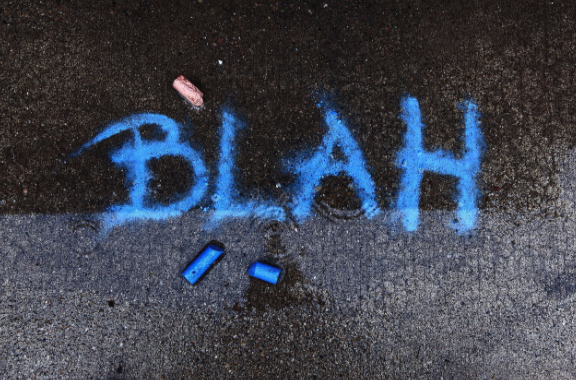Blue Monday: The Top Ten Myths and Facts Surrounding The Notorious Third Monday in January

Top 10 Myths & Facts About “Blue Monday”
Blue Monday is the name given to the third Monday in January when, proponents claim, we are most likely to be depressed about everything from the bleakness of the weather to post-holiday stress to the credit card bills we racked up over said holidays. In fact, Blue Monday is touted as the most depressing day of the year!
Research Finds
Most researchers agree that the concept is pseudoscience at best, but the fact that it exists and people buy into its validity can make it a dangerous idea, to say the least. Depression during the winter months is not uncommon, but it’s often tied to a very real psychological malady known as Seasonal Affective Disorder (aka SAD). The theories about why people are afflicted each winter with SAD, and include the possibility of dwindling levels of melatonin which influences sleep patterns and mood, decreases in the brain chemical serotonin, which also negatively affects mood, and disruptions in the body’s circadian rhythm, also leading to feelings of sadness and hopelessness. All three are tied into the decrease in sunlight.
Facts vs. Myths
But back to Blue Monday … We’ve rounded up a list of the top ten facts — and myths — about the existence of Blue Monday, which falls on January 15th in 2018:
- FACT: The concept of Blue Monday was first publicized as part of a 2005 press release from holiday company Sky Travel which claimed to have calculated the date using an equation. Why the hype? The company used the Blue Monday campaign as a way to convince people that late January was a great time to take a vacation to fight the winter doldrums that contribute to this most depressing day of all, thereby escaping its clutches.
- MYTH: Blue Monday is backed up by science. (Pseudoscience, maybe, but researchers have found no evidence that people are any more depressed on that particular Monday in January than they would be on any other day.)
- FACT: The creator of the ad campaign for Sky Travel, Cliff Arnall, is today one of the biggest proponents for busting the myth of Blue Monday.
- MYTH: Most suicides occur around this time of year. (The truth is, the suicide rate is fairly consistent throughout the year, peaking just slightly in the spring and summer.)
- FACT: The very first “Blue Monday” fell on January 24th in 2005.
- MYTH: If you know somebody who’s suffering from depression, you should “warn” them about the existence of Blue Monday and be extra vigilant about keeping an eye on them on that day of all days. (Hooey. If you know somebody who’s suffering from depression, the best thing you can do is to let them know that you’re available anytime they want to talk, and be willing to support them every day of the year.)
- FACT: The factors that supposedly make Blue Monday “depressing” — bad weather, holiday debt, post-holiday letdown, etc. — can make people feel a bit down. But there’s a big difference between feeling “blue” and being depressed. Depression is a very real mental illness that affects millions of people at all different times of the year, and there’s no one circumstance that “causes” depression.
- MYTH: Everybody’s heard of Blue Monday and knows that it’s a hoax. (Not everybody’s heard of it, and there are people that people that it’s a valid concept.)
- FACT: It’s possible to turn what has become a pop legend into an opportunity to help a friend, coworker of loved one by beginning an open dialogue about mental health, and removing its undeserved stigma once and for all. We all need to talk about mental health without the stereotypes and stigmas that have been attached to the subject for far too long!
- MYTH: The company that first introduced the Blue Monday myth to the world stands behind it. (Truth: Sky Travel has also let it be known that Blue Monday has no basis in fact, and they — like its creator — would like everyone to see it for the myth that it actually is!)
Conclusion
As you can see, much of what we’re led to believe about the “most depressing day of the year” is largely the product of popular culture and myth. It’s best to ignore the ominous “warnings” you might see as the day approaches, and see it for what is — a made up day that has nothing to do with the reality of depression.
A Note About National Crime Scene Cleanup (NCSC)
National Crime Scene Cleanup understands the reality of depression and its connection to suicide all too well. We specialize in helping families through the unthinkable logistics of some of the darkest days of their lives. We have live operators standing by 24 hours a day at 1-888-611-3672, and provide services such as suicide, domestic violence or crime scene cleanup. Our professional crews are always sensitive to your needs and the desire for privacy and discretion.


